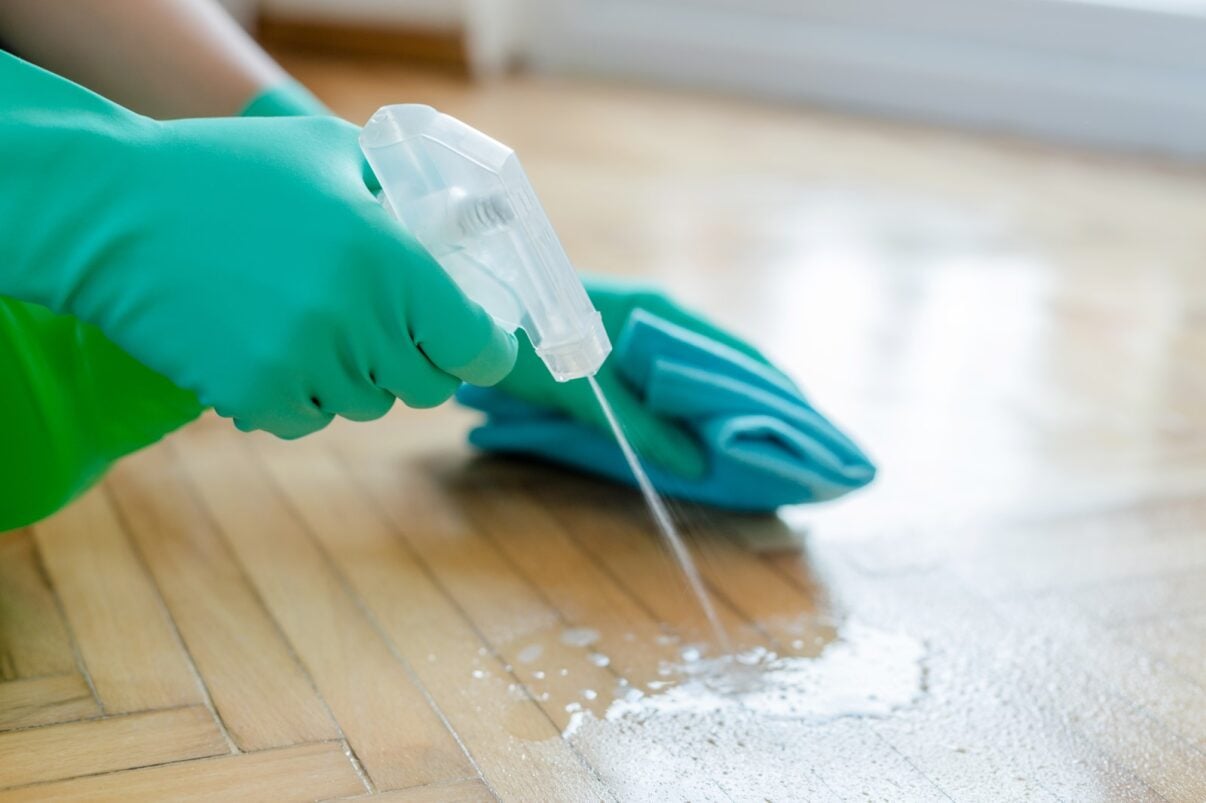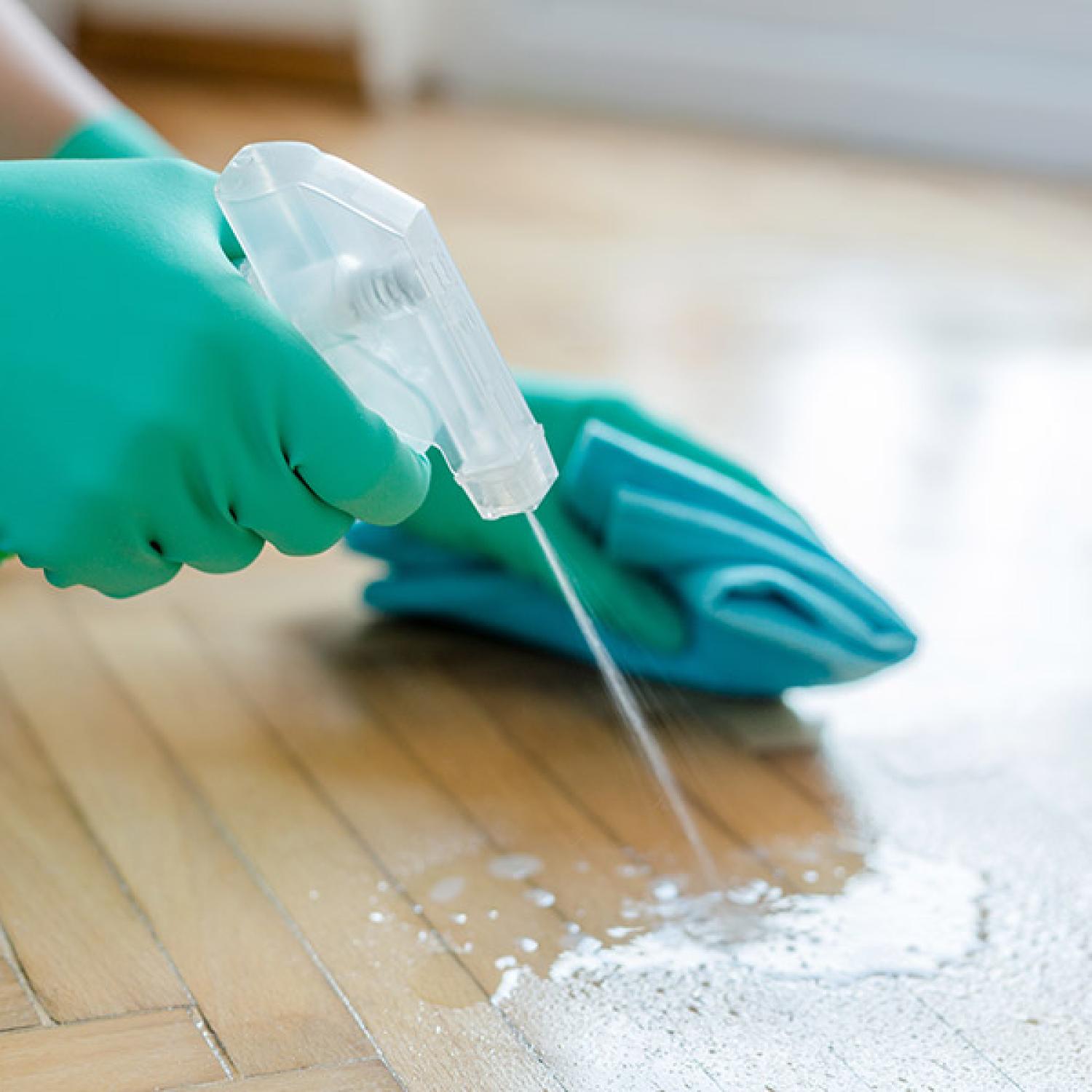Why do cleaners need insurance?
Damaged property
As a self-employed cleaner or the owner of a cleaning business, you understand the importance of handling other people’s property with care. Still, accidents can happen – if your commercial cleaning company is accused of causing a high-spec TV to topple from its stand, insurance could act as a lifeline. Or one of your new cleaners may spill a drink on an office printer, for example.
Hiscox public liability insurance can help financially, with cover for legal costs. It assists with fees and pay-outs, so you can stay focused on achieving the perfect polish.
Accident and injury
When a client gets home early and slips on wet kitchen tiles, as a self-employed cleaner you may need to rely on insurance if the person complains of an injury caused by your work. For a bigger cleaning company, insurance can help if one of your client’s employees trips on a vacuum cable at the office you clean.
Either way, if you’re held liable for damages, it’s good to know public liability insurance may help cleaners to pay legal fees and compensation.
Equipment issues
The opportunity to take on a new cleaning contract is exciting, so you do an inventory of your equipment. Upon testing your steam cleaner, you find it’s been damaged during a previous job. Property away and in transit cover could help repair or replace equipment that is damaged when you’re out and about. It can be built into the business insurance for your cleaning company. Equipment breakdown cover may help with malfunctioning kit.
With the appropriate cover, you can get assistance with keeping things moving and ensure your reputation is as polished as your surfaces.
What insurance is available for cleaners?
Public liability insurance
Public liability insurance safeguards cleaning contractors and cleaning businesses if a member of the public claims they’ve been injured or believes their property has been damaged due to your services. Commercial cleaning might not seem a hazardous profession, but accidents can happen. And public liability insurance helps support cleaners financially if a misplaced mop lands you in court.
Whether you run a cleaning business or trade independently, it’s good to know your insurance can help with legal fees and pay-outs.
Employers' liability insurance
When your cleaning business grows, employing a new team member might be top of the agenda – so it’s useful to know employers’ liability insurance is often legally required (external link) for anyone with staff. This type of insurance helps to protect a cleaning business against the risk of your employee or helper becoming injured on the job.
A friend might help you with big jobs – if they become ill and blame it on your cleaning chemicals, you could be held liable. Employers’ liability insurance can help pay compensation.
Portable equipment insurance
Working as a self-employed cleaner means you probably carry a lot of kit, so having insurance for this could help shield you from the impact of breakages and theft. In commercial cleaning, your vacuum cleaner could be essential for most jobs – fortunately, our portable equipment insurance can assist a self-employed cleaner with the cost of repairs and replacements.
Likewise, if your cleaning company hires specialist equipment for a contract project, we can cover this against the risk of loss, damage and theft.
Some cleaners tailor their policy with other covers, such as legal protection insurance – useful for contractual disputes – and cyber and data insurance.
Get in touch and we can help you build an insurance policy tailored to your cleaning business.
Build my coverInsurance for cleaners: FAQs
What insurance do I need as a self-employed clearner?
When working as a cleaning contractor, you’ll likely need cover under many of the same insurance types as large cleaning companies. This is because several similar risks exist for small and large projects alike.
Having public liability insurance can be especially important for a cleaning contractor who might otherwise struggle to fund a court case and compensation payments. This cover type serves to protect anyone who works with or around members of the public.
Learn more about our full self-employed insurance offering.
What types of cleaning services do Hiscox cover?
Hiscox business insurance covers several types of cleaners and cleaning companies, including self-employed cleaners, commercial cleaning firms and those offering domestic services and housekeeping. For instance, if you support with tasks such as ironing as well as cleaning.
We also cover commercial cleaners and companies working in certain cleaning specialisms, including carpet and upholstery cleaners.
Do you need a licence for a cleaning business in the UK?
Setting up your own cleaning business won’t normally require a specific licence. However, showing proof of a Disclosure and Barring Service (DBS) check (external link) may increase trust in your enterprise. You could also sign up to voluntary codes of practice run by trade associations.
When it comes to insurance, employers’ liability cover will usually be a legal requirement as and when you take on staff members.
Related articles and guides

How insurance helped a cleaning business facing false allegations
Robyn, the owner of an oven-cleaning business, had to challenge claims she damaged an appliance – find out how insurance can help with false allegations.

How to manage business cash flow
Starting out as a self-employed cleaner? Read our guide to managing business cash flow to keep one eye on your future finances.

What business insurance does a sole trader need?
Being your own boss brings freedom, but it could mean you need to consider the insurance asks in your contracts. Read more with our sole trader insurance needs FAQ.
